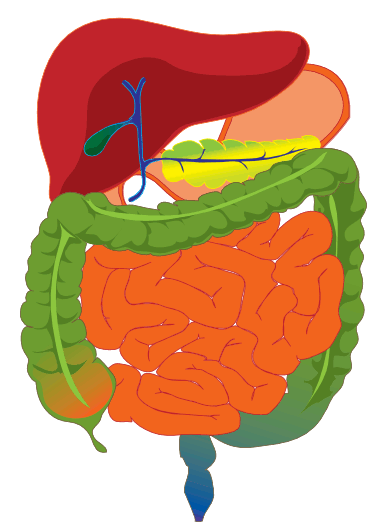Your Microbiota by the Numbers
 The microbiota is a community of bacteria that colonize the body and can influence metabolism, physiology, nutrition and immune function. An ever-growing body of research indicates that the microbiota plays a critical role in regulating host homeostasis, and changes to the bacterial diversity of the microbiota may lead to increased susceptibility to disease. The bacteria in your gut may even affect your weight; twin studies have demonstrated that there is a difference in bacterial diversity between a lean twin and an obese twin.
The microbiota is a community of bacteria that colonize the body and can influence metabolism, physiology, nutrition and immune function. An ever-growing body of research indicates that the microbiota plays a critical role in regulating host homeostasis, and changes to the bacterial diversity of the microbiota may lead to increased susceptibility to disease. The bacteria in your gut may even affect your weight; twin studies have demonstrated that there is a difference in bacterial diversity between a lean twin and an obese twin.
With so many important roles, the microbiota has become a hot area of research. And while the large size of the microbiota is now well-known, its enormity can still be hard to grasp. To help, here is your microbiota by the numbers:
- The human body is colonized by about 100 trillion bacterial cells, meaning your body contains 10 times more bacterial cells than human cells. The majority of the bacteria reside in the large intestine.
- At least 1,000 different species of bacteria make up the microbiota. 1/3 of the species are common to most people, while 2/3 are specific to an individual.
- More than 3 million microbial genes are contained within the microbiota. This is about 150 times more genes than found in the human genome.
- It is estimated that the weight of the microbiota may be as much as 5 pounds.
- Babies are born without bacteria. After initially acquiring bacteria from their mother’s birth canal, their microbiota continues to develop until 3 years of age.
- Extensive research into the microbiota only began in the 1990s. In 2008, the US National Institutes of Health established the Human Microbiome Project to characterize the human microbiome and analyze its role in both human health and disease.
Are there any other microbiota figures you find interesting? Let us know on Twitter or Facebook! And if you work in this area of research, check out our reagents for bacteriology research, zebrafish antibodies for studying the intestine, or our MUC-1 cell line and antibody for studying the epithelial cells that line the mucosal surfaces of the gut.



